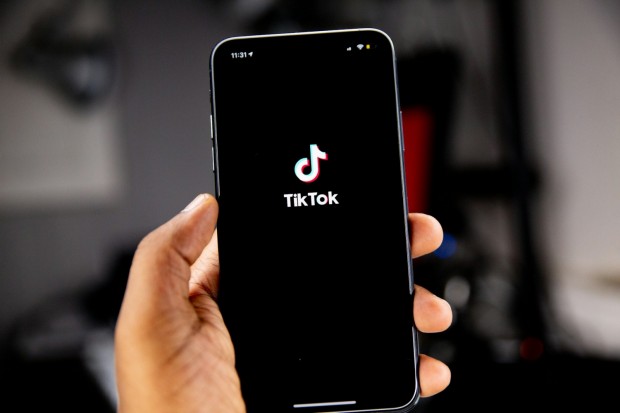Pressure Mounts on TikTok as U.S. House Moves to Enact Ban
The destiny of TikTok in the United States took a decisive turn this Saturday when the House of Representatives passed legislation necessitating ByteDance, the China-based owner of TikTok, to offload its stake in the social media giant within a year. This significant vote hastens potential barriers to the app's operation in the U.S. amidst a broader dialogue around national security concerns and technology oversight. The bill passed with a 360-58 majority, showcasing a remarkable bipartisan consensus against the popular platform.

(Photo : Unsplash/Solen Feyissa)
Bipartisan Concerns Over National Security
The legislative move carries significant implications. ByteDance Ltd. is TikTok's parent company. It faces a tight deadline. The company must sell its stake in TikTok's U.S. operations. Lawmakers from all sides share deep concerns. They worry about foreign influence. They also worry about data privacy on platforms like TikTok. The backdrop to this legislative measure includes a historical bipartisan bill initially targeting a six-month divestiture timeline but faced roadblocks in the Senate. The updated legislation was subsequently tethered to a larger foreign aid package, a stratagem that significantly bolstered its momentum through Congress.
The concerns are not unfounded. Members from both political parties and intelligence officials have echoed worries that ByteDance could be coerced into sharing American users' data with the Chinese government or manipulating the platform's formidable algorithm to sway political and social narratives. Despite these accusations, concrete evidence showing TikTok's misuse in such manners remains publicly undisclosed.
ALSO READ: House Legislators Forge Bill to Force ByteDance's TikTok Divestment or Enforce Ban
TikTok's Response and Legal Challenges Ahead
TikTok has vociferously opposed the accusations and the ensuing legislative actions. Shou Zi Chew, the CEO of TikTok, reassured the app's colossal U.S. user base through a video message, committing to fight the ban using all available legal pathways. This commitment to oppose the legislative measure reflects a confrontation between U.S. legislation and technology freedoms. Historically, TikTok has faced similar challenges, notably when a federal judge overturned a Montana ban, arguing it impeded free speech rights.
In anticipation of potential hurdles, the company has initiated a robust campaigning effort against the proposed legislation, including a $5 million spending spree on T.V. ads advocating for the platform's positive societal impact. Moreover, the suggestion of involving its vast U.S. user base to reach out to Congress marks a direct approach to lobbying against the proposed restrictions.
What Lies Ahead for TikTok and Its Users?
The unfolding situation presents a complex mosaic of challenges and uncertainties for TikTok, its parent company ByteDance, and the millions of American users engaged with the platform daily. A legal challenge appears inevitable, pending the final approval of the legislation by the Senate and subsequent action into law. However, TikTok's precedence in overcoming legal hurdles in the U.S. provides a glimmer of hope for the platform and its advocates.
Simultaneously, the broader discourse surrounding the ban highlights ongoing debates regarding free speech, tech regulation, and national security. Organizations like the American Civil Liberties Union have stepped into the fray, voicing concerns over the rights of the 170 million American TikTok users.
The responses from TikTok's management and its vibrant community of users encapsulate the platform's deep-rooted significance in modern digital life. Content creators, in particular, stand at a precarious junction, with livelihoods potentially at stake. The eventual outcome of this legislative challenge will undeniably resonate far beyond social media, influencing policy, technology regulation, and international relations.
As the Senate reviews the passed legislation, all eyes remain on TikTok's next steps. Will legal avenues offer a reprieve, or will ByteDance be forced into a sale? The landscape of social media and digital content in the U.S. hangs in the balance.
RELATED TOPIC: US Supreme Court to Hear Cases on State Laws Affecting Social Media Platforms' Rights
© 2023 Lawyer Herald All rights reserved. Do not reproduce without permission.
Get the Most Popular Lawyerherald Stories in a Weekly Newsletter





